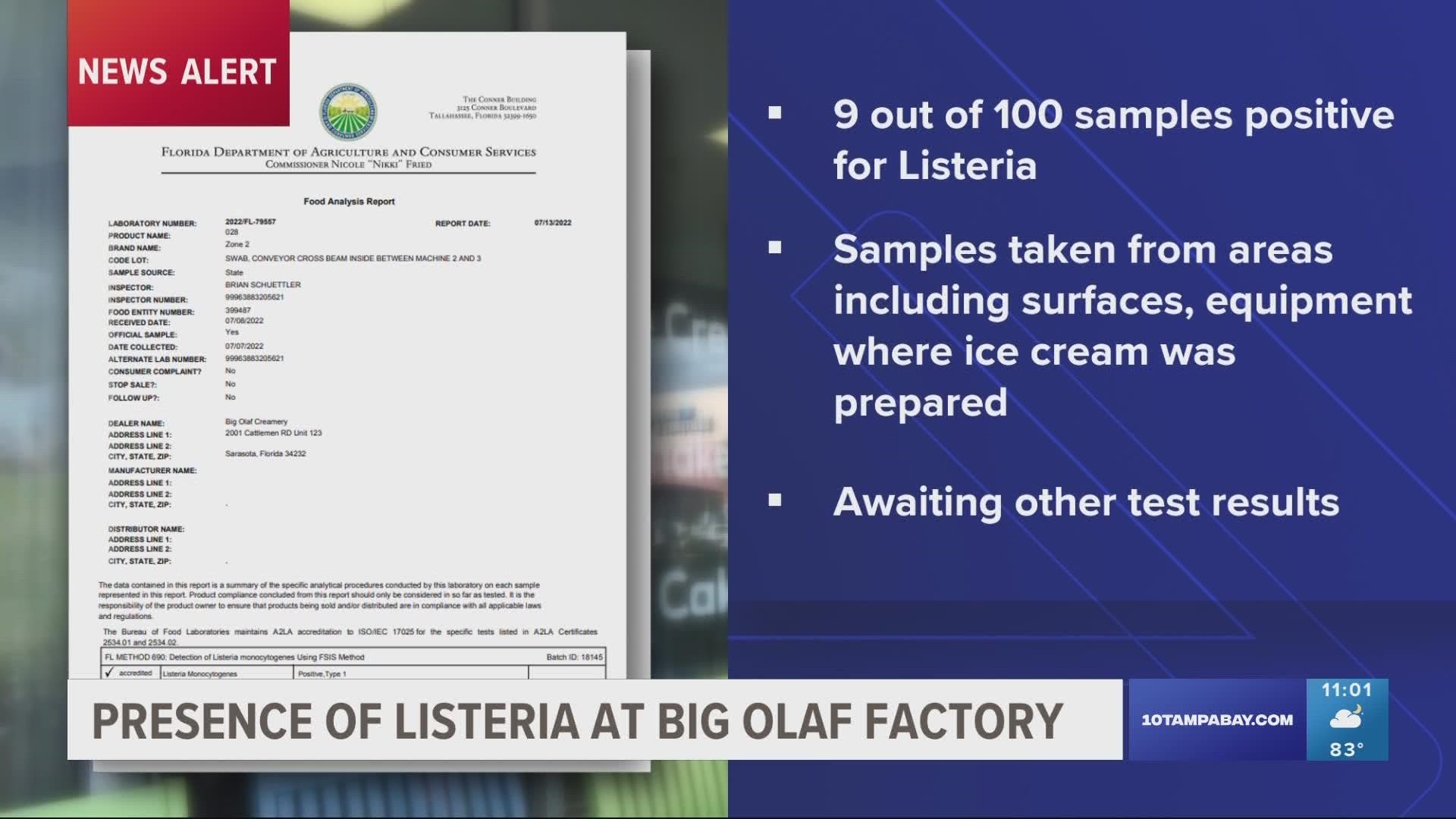SARASOTA, Fla — Following a voluntary recall of Big Olaf Creamery ice cream, the Florida Department of Agriculture & Consumer Services found traces of Listeria monocytogenes among samples taken at the Big Olaf Creamery processing facility.
Out of 100 samples taken at the facility, nine have come back positive for Listeria, a spokesperson for FDACS told 10 Tampa Bay in an update. The department is still waiting on results from product sampling but hopes to have answers in the coming days.
Due to the positive samples collected at the processing facility, FDACS has issued a stop use order of the processing equipment where Listeria was found.
"This will effectively shut down all operations at this processing facility, which had already been done voluntarily by the company," FDACS said.
10 Tampa Bay reached out to Big Olaf Creamery for comment but has not yet received a response. The company's voicemail box was full and they have not responded via email, either.
The voluntary recall was issued Monday, July 12, after the ice cream was linked to a recent Listeria outbreak, according to the U.S. Food & Drug Administration. The decision to issue the voluntary recall also stems from when the Centers for Disease Control and Prevention initially linked the ice cream to Listeria.
Two lawsuits have been filed, with one reportedly involving a Massachusetts woman who had a miscarriage.
As of July 13, 23 people from 10 states have become infected during this outbreak, the FDA said. The CDC said 22 of those sick had to be hospitalized. The agency was able to interview 18 of those people, and all of them said they had eaten ice cream prior to getting sick.
Of those who remembered details about the type of ice cream they ate, 10 people said they ate Big Olaf Creamery ice cream or at locations that could have served or had that brand.
Twelve people who got sick live in Florida and another nine said they traveled to the Sunshine State before getting sick.
Listeria can cause severe illness when the bacteria spread beyond the gut to other parts of the body, the CDC says. Symptoms of severe illness usually start within two weeks after consuming food contaminated with Listeria, but start the same day or as late as 70 days after.

